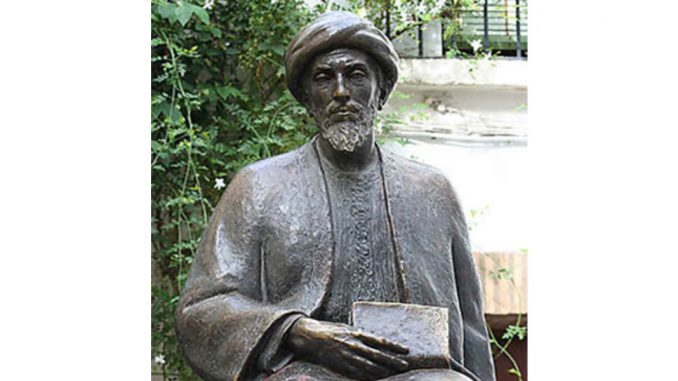
Some say of him that he was the greatest Jewish thinker of all time, after Moses of course. There is even a saying: “From Moses (from the Bible) to Moses (in the time of Saladin), there was none like Moses. In any case, Moses, son of Rabbi Maimon, born in 1135 in Cordoba, Andalusia, had a considerable influence on Judaism.
However, he remains a mysterious figure, since the Jewish world, like the world of philosophy, continues to question itself more than 800 years after his death on the ins and outs of a complex and… still relevant thought.
Alain Michel
A peaceful life disturbed by the arrival of the Almohads
At the beginning of the twelfth century, the golden age of Spain of the three religions is already a memory. We can still speak of a “silver age” during which, although relations between intellectuals, poets and philosophers remained open, the daily relations between the populations had already deteriorated, following the expansion of the Reconquista and the withdrawal of the Arab kingdoms to Andalusia. The Jewish communities are thus dispersed between the lands of the Christian kingdoms and Muslim Spain. This is the case of Cordoba, where the young Moses grew up, later to be known as Maimonides.
His father was a rabbinical court judge with a reputation that extended beyond the city. This father quickly realized his son’s intellectual gifts and surrounded him with reputable Jewish and Muslim masters and teachers, who passed on to him traditional knowledge as well as mathematics and philosophy. Around the age of 16, Moses wrote his first book on theological terms and, for almost three decades, his father and brother managed to ensure that his intellectual training could be accomplished without him having to worry about material matters.
The war is shattering what could have been a peaceful life in “El Andalous”. In 1147, Muslim Spain is indeed invaded by fundamentalist warriors from the Moroccan High Atlas, south of Marrakech.
The Almohads, in Arabic “al-Mowaḥḥidoun” (those who proclaim divine unity) have as their program to return to the purity of the sources of Islam, to revitalize the kingdoms of southern Spain and to oppose the Christian Reconquista. They do not recognize the right of the people of the Book, Christians and Jews, to live in their beliefs and try to impose Islam on them.
As a result of this invasion, Judge Maimon’s family was forced to wander through southern Spain, from refuge to refuge. Their traces were more or less lost for about ten years before they were found again in 1160 in Fez, Morocco, in the middle of the Almohad Maghreb. However, it seems that in Fez, living conditions for the Jews were better, and we know that a Mozarabic community (Christians from Al Andalus) was also there. The presence of the famous Al Quaraouiyine University is undoubtedly also a factor of tolerance and openness, and it was in its setting that the young Maimonides studied medicine.
According to some sources, Maimonides’ family superficially converted to Islam, and in any case, Maimonides himself later wrote an epistle on forced conversions to Islam in which, because of the proximity of the two religions, he allowed the Jews who were forced to return to Judaism. Maimonides thus began to have some authority in matters of law around the age of thirty. Nevertheless, in 1165, following the assassination by the rabble of one of the leaders of the Jewish community of Fez, Rabbi Yéhouda Hacohen, the family of Rabbi Maimon fled Morocco to Saint-Jean-d’Acre, then the main port of the Free States of Palestine.

Be the first to comment